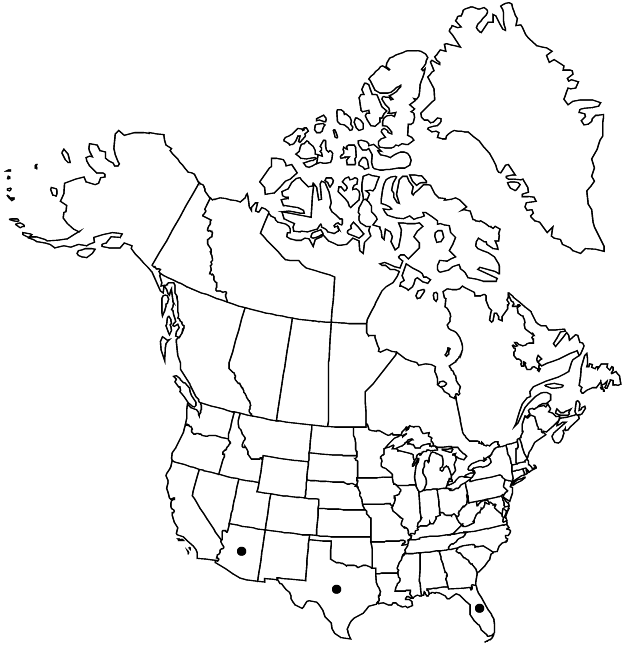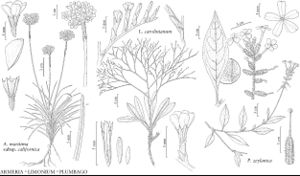Difference between revisions of "Plumbago zeylanica"
Sp. Pl. 1: 151. 1753.
FNA>Volume Importer |
FNA>Volume Importer |
Revision as of 22:33, 16 December 2019
Plants herbaceous. Stems prostrate, climbing, or erect, glabrous. Leaves petiolate (to 1.5 cm) or sessile; blade ovate, lance-elliptic, or spatulate to oblanceolate, (3–)5–9(–15) × (1–)2.5–4(–7) cm, base attenuate, apex acute, acuminate, or obtuse. Inflorescences 3–15(–30) cm, rachises glandular, viscid; floral bracts lanceolate, 3–7 × 1–2 mm. Flowers heterostylous; calyx 7–11(–13) mm, tube glabrous but with stalked glands along length of ribs; corolla white, 17–33 mm, tube 12.5–28 mm (less than 2 times length of calyx), lobes 5–12 × 3–3.5 mm; stamens included. Capsules 7.5–8 mm. Seeds reddish brown to dark brown, 5–6 mm.
Phenology: Flowering year-round.
Habitat: Palm groves, thickets, shady hummocks, shell mounds, rocky places in open areas
Elevation: 0-50 m
Distribution

Ariz., Fla., Tex., Mexico, Central America, South America, Asia, Africa, Pacific Islands.
Discussion
Plumbago zeylanica and P. scandens, both Linnaean species, have heretofore been treated as distinct, the former name applied exclusively to Old World plants, the latter to New World specimens. John Edmondson (pers. comm.) indicates that he believes this “could be a classic case of New World and Old World taxonomists each doing their own thing.” Plants in herbaria under these two names appear indistinguishable.
Selected References
None.
